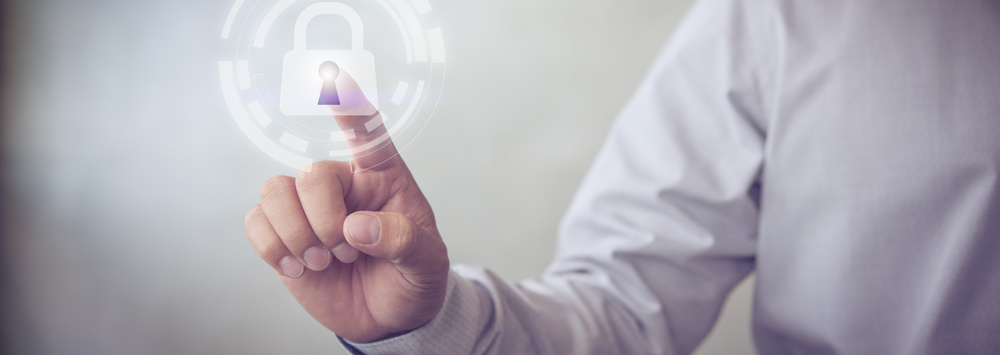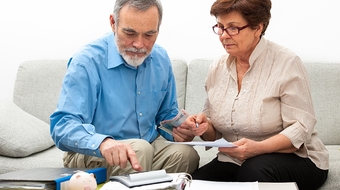Be safe online. Learn the 5 principles that you better follow

Anyone who is active on the Internet must stick to the rules. If you want to be safe online, protect your personal data and follow the principles.
On the Internet, as in life, we should always take care of our safety. That's why when we drive, we fasten our belts. When we're on the bus, we keep an eye on the bag and have it in sight. We protect it from thieves. In the evenings we do not tempt fate by avoiding walking in an unlit park. When we withdraw money from an ATM, we cover the PIN keypad with our palm. We follow many rules on a daily basis, thus avoiding trouble.
The same is true when surfing the web. See what to do to protect yourself against hackers (i.e. virtual thieves) and computer viruses.
Install anti-virus software - be safe online
We have some good (also freeware) anti-virus programs on the market that effectively protect your computer from unwanted software and viruses. Install such a program to protect your device against loss of important data or even against overall hardware failure.
Only you know your passwords and logins
This should be the basic principle to follow online. Also, if you have multiple accounts on different sites, your password should be different everywhere and changed regularly. That way, you will be able to protect yourself from a cyber-attack.
Note: The password should be long (min. 8 characters) and contain upper case, lower case letters, numbers and special characters.
How do you memorize so many passwords? It’s definitely bad practice to note them down in your phone or on loose sticky notes that tend to get lost. There are special tools and applications (online-based, of course) for storing this type of data (e.g. KeePass Password Safe or Sticky Password).
You may download each of these programs to your computer or install an app on your smartphone.
Watch out for your social media behavior
If you have a Facebook account, you know that you can publish pretty much anything there. Upload a photo of your holiday, share information that you are on a friend's birthday party or boast about having once again become a grandfather or grandmother.
You share the facts of your life, but do you remember not to do it in public? Note your profile status settings. If it's not private and accessible for friends only, change it quickly.
Protect your data. Remember, the news that you're not home may also be read by... thieves.
You want to be safe on the Internet. Think about where you leave your data
First of all, you shouldn’t do it in unknown places. It's good to consider carefully where and to whom you want to share information about yourself. What is the site that you are setting up an account on and who will eventually receive your credit card number?
What should bother you?
- Strange website addresses (URL). Hover your mouse cursor over the name and see what will appear in the bottom left-hand corner of the screen - if the name matches and there is no typo intentionally thrown in, the address is valid.
- Check the HTTPS certificate - if you see a padlock icon next to the page address, it means that traffic is encrypted and secure. This prevents the stealing of confidential data (e.g. credit card number or password).
- Lack of ratings and comments on the site - if, for example, you find yourself on an online store site where there are no user reviews (e.g. in the form of a comment under the product) and ratings (numerical, star), consider whether you want to make a purchase.
Email - use anti-spam tools
If you have an email account, for example on Gmail, Yahoo or Outlook, several or more e-mails come to your inbox every day, with the senders being not exactly your friends and family. Often it is unwanted spam, which automatically goes in the junk. However, it happens that the e-mails you receive resemble messages you usually get from your bank, for instance.
Unfortunately, in recent years cybercriminals have developed their hacking skills very strongly and are able to construct a message that looks authentic. Sometimes that's how secret data is stolen. There are, however, anti-spam programs that you can install additionally and use them to better protect your privacy.
What's phishing?
Phishing is quite a sophisticated form of cheating, stealing.
Hackers use this method to get information from us, including passwords, credit card details, insurance number. They do this by sending fake emails or links to websites.
Also, take note of attachments in emails. Do not open files you have received from an unknown source. Even if you see a familiar name (or nickname) in the sender box, make sure that the person who sent you the attachment can confirm this before you download it. Make sure you are safe on the Internet.
Also, do not entrust sensitive details (such as ID card number and series, credit card number, PESEL, phone number) to third parties. Whenever you want to get rid of a paper document where such data appears, thoroughly destroy it before discarding it. Remember that even a seemingly insignificant bit of information, e.g. from an invoice, can help thieves.
The e-kruk.pl tool meets all the above described standards of personal data protection on websites.
Follow these rules and you will be safe online.



